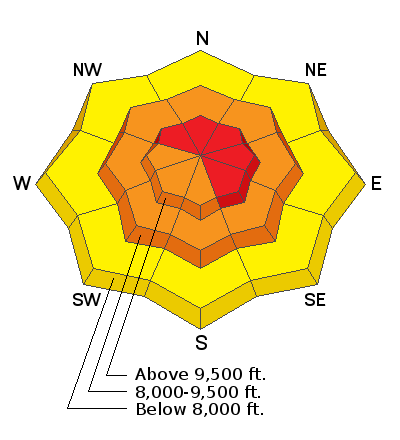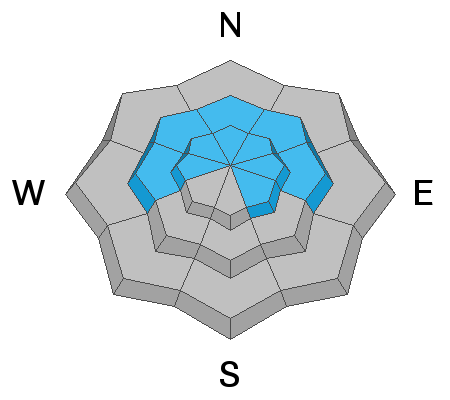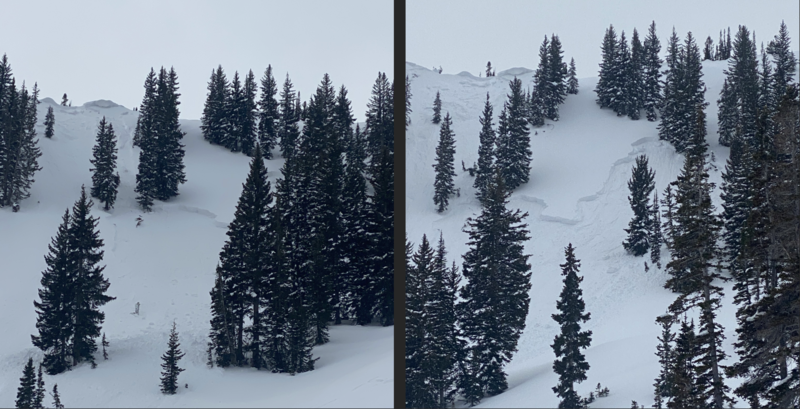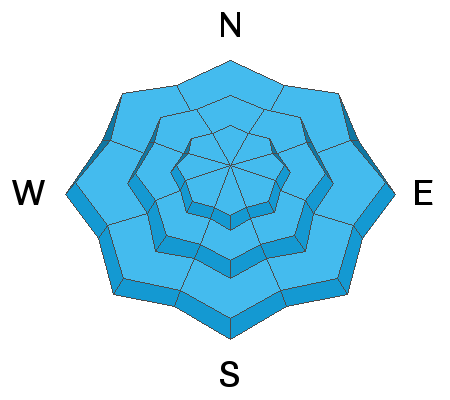Special Avalanche Bulletin
IN EFFECT FROM 6 AM MST THIS MORNING TO 6 AM MST SUNDAY
FOR THE MOUNTAINS OF NORTHERN UTAH INCLUDING THE WASATCH RANGE...BEAR RIVER RANGE...UINTA MOUNTAINS...
THE AVALANCHE DANGER IS CONSIDERABLE TO HIGH IN MANY AREAS.
CONDITIONS ARE PERFECT FOR AVALANCHE ACCIDENTS THIS WEEKEND. DANGEROUS AVALANCHE CONDITIONS EXIST. AVALANCHES COULD BE LARGE, VERY DANGEROUS, UNEXPECTED, AND PERHAPS DEADLY.
WHAT A STORM! snow totals are impressive from the past 24hrs. As the storm exits to our east, the winds veered to the northwest and have finally calmed down to more reasonable speeds. The wind is currently blowing from the northwest at speeds of 10-15 mph, gusting into the 20's across the upper elevation terrain. The cold front overnight ushered in colder temps, and mountain stations record temperatures in the teens to low 20's °F.
The snow will begin to taper off by late morning as high pressure builds in for the weekend leading to clearing skies. The good news is this high pressure is short-lived, and we return to an active pattern by mid-week. Rough snow totals are as follows:
Upper LCC: 15"-18" new snow (1.0 "-1.15" water)
Upper BCC: 12"-19" new snow (0.75"-1.15" water)
Park City Ridge: 10"-12" new snow (0.80"-1.0" water)
Provo Mountains: 10"-12" new snow (1.0"-1.51" water)
Ogden Mountains: 10"-15" new snow (0.95"-1.31" water)
Week in Review: This past week has been active with lots of (1) snow, (2) wind, and (3) avalanches. Catch up by reading our latest
Week in Review.
Yesterday there was a report of a significant natural avalanche from the
Silver Fork Headwall that was roughly 3' deep and 150' wide. Snow safety teams continue to produce large results with explosives and avalanches are breaking down to the ground in uncompacted terrain.
Overnight, Upper Little Cottonwood Canyon went through a natural new snow avalanche cycle on the steep southerly facing terrain. The avalanche list is growing, and as always, you can find all observations and recent avalanches
HERE.










